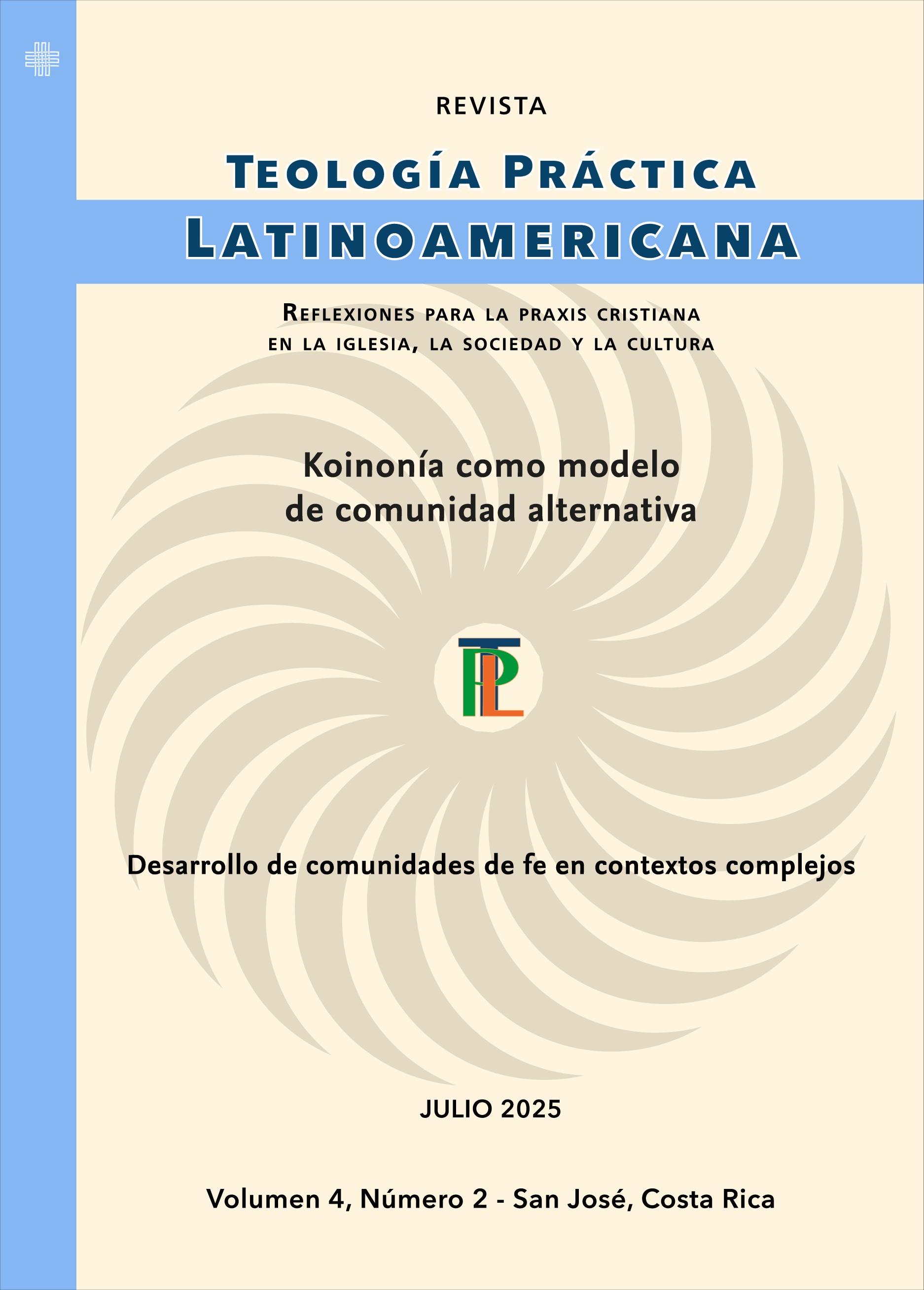Koinonia and homeless people
Project “Chepe se baña” in Costa Rica and its impact on the development of alternative faith communities
Abstract
The article analyzes the contrast between traditional faith communities–hierarchical and focused on conversions–with the alternatives, based on koinonia, which prioritize social cohesion, participation and solidarity. These communities, rooted in primitive Christianity, reject proselytizing and emerge from everyday needs, fostering resilience and empowerment. The article is based on the case study of the “Chepe se baña” project (San José, Costa Rica), which works with homeless people. Through shared religious imaginaries and inclusive social actions, the project generates significant transformations without relying on traditional church structures. It is concluded that these communities, arising from the grassroots, are effective tools for social inclusion, integrating faith and liberating praxis in contexts of vulnerability.
